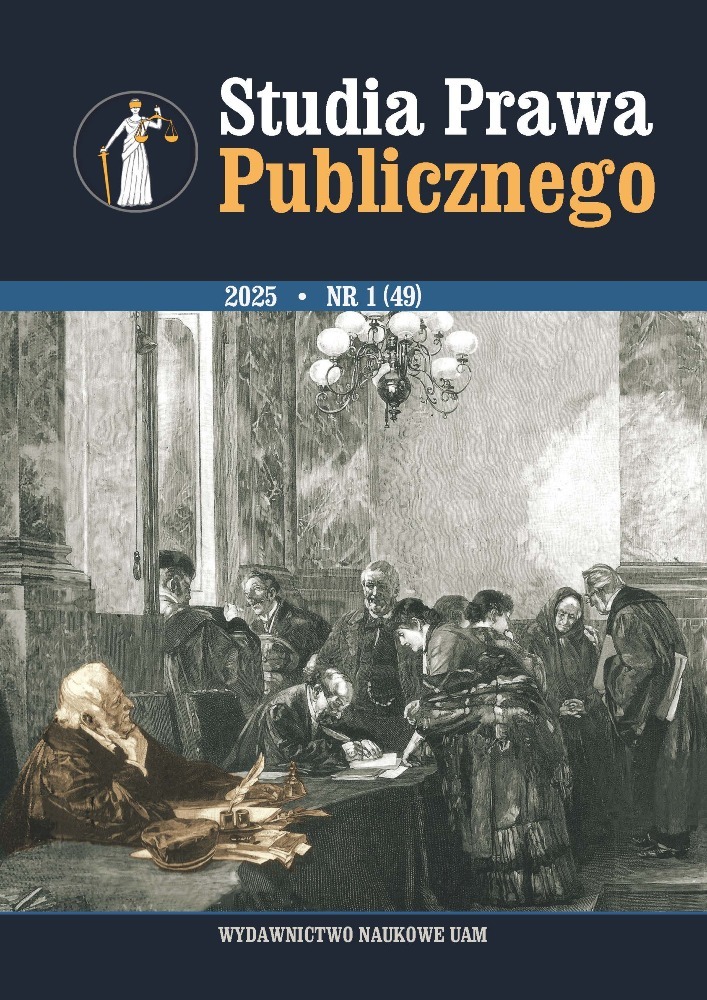Abstrakt
The legal services market in Germany is tightly regulated with the Legal Services Act (RDG) serving as the central framework for out-of-court legal services. The RDG outlines which activities are classified as legal servicesand designates the professional groups authorized to provide them. However, as digitalization and automation evolve in a significant way, the applicability of traditional laws to innovative legal services is increasingly questioned. Emerging legal tech platforms, software, and web-based applications introduce new dimensions of legal assistance, offering user-friendly, cost-effective, and accessible options, particularly for non-experts. As the RDG is not designed to encompass all conceivable aspects of legal services, but rather its primary purpose is to address and regulate existing gaps within the legal service landscape, its requirements become crucial for regulating all types of legal activities beyond the established professions such as lawyers, tax consultants, or auditors.
This paper examines the challenges posed by digital legal services in the context of the RDG, focusing on key decisions by the German Federal Court of Justice (BGH) that have addressed the legality of offering a contract generator under the RDG.
This article aims to analyse the Smartlaw case, emphasising the distinctive aspects of each instance’s ruling and clarifying the criteria for the RDG’s application. It also explores the boundaries of permissible legal services in Germany in the face of rapid technological advancement.
Bibliografia
Andreae Z., Ovalioglu A., Legal Tech in Rechtsabteilungen, “Zeitschrift für die digitale Rechtsanwendung (LTZ)” 2024, no. 3, pp. 242–243.
Brechmann B., Legal Tech und das Anwaltsmonopol – Die Zulässigkeit von Rechtsdienstleistungen im nationalen, europäischen und internationalen Kontext, Tübingen 2021. DOI: https://doi.org/10.1628/978-3-16-160714-1
Deckenbrock C., Henssler M., Rechtsdienstleistungsgesetz, 5th ed., München 2021.
Fries M., Rechtsberatung durch Inkassodienstleister: Totenglöcklein für das Anwaltsmonopol?, “Neue Juristische Wochenschrift (NJW)” 2020, no. 4, pp. 193–195.
Grunewald B., Römermann V., Beck‘scher Online-Kommentar RDG, 30th ed., München 2024.
Hartung R., Smartlaw, ChatGPT und das RDG, “Recht Digital (RDi)” 2023, pp. 209–217.
Henning K., Lackmann F., Rein A., Privatinsolvenz Handkommentar, 2nd ed., Baden-Baden 2022.
Henssler M., Die Zukunft des Rechtsberatungsgesetzes, “Anwaltsblatt (AnwBl.)” 2001, vol. 51, pp. 525–533.
Hoch V.R.S., Hendricks J.D., Das RDG und die Legal Tech-Debatte: Und wo bleibt das Unionsrecht?, “Verbraucher und Recht (VuR)” 2020, no. 7, pp. 254–261.
Kilian M., Digitaler Generator für Rechtsdokumente als Rechtsdienstleistung?, “Deutsches Steuerrecht Entscheidungsdienst (DStRE)” 2020, pp. 1278–1280.
Krenzler M., Der Rechtsdienstleistungsbegriff in Zeiten von Legal Tech, “BRAK-Mitteilungen” 2020, pp. 119–123.
Krenzler M., Remmertz F.R., Rechtsdienstleistungsgesetz, 3rd ed., Baden-Baden 2023.
Mitsch W., Karlsruher Kommentar zum Gesetz über Ordnungswidrigkeit, 5th ed., München 2018.
Overkamp S., Overkamp Y., in: Bundesrechtsanwaltsordnung: BRAO, eds. M. Henssler, H. Prütting, 6th ed., München 2024.
Quarch B., Neumann J., Überblickaufsatz Legal Tech-Markt 2024, “Zeitschrift für die digitale Rechtsanwendung (LTZ)” 2024, no. 2, pp. 131–136.
Remmertz F.R., Legal-Tech – Rechtliche Beurteilung nach dem RDG, “BRAK-Mitteilungen” 2017, pp. 55–61.
Rott P., Sein K., Obstacles to Legal Tech Services: Examples from Germany and Estonia, “Journal of European Consumer and Market Law (EuCML)” 2021, vol. 10, no. 3, pp. 101–108.
Thole C., Zulässigkeit eines digitalen Angebots – Vertragsdokumentengenerator, “Neue Juristische Wochenschrift (NJW)” 2021, pp. 3125–3129.
Wessels F., Legal Tech als unzulässige Rechtsdienstleistung, “Zeitschrift für IT-Recht und Recht der Digitalisierung (MMR)” 2020, pp. 56–60.
Licencja
Prawa autorskie (c) 2025 Olaf Meyer, Priscila Luz Barreiros

Utwór dostępny jest na licencji Creative Commons Uznanie autorstwa – Bez utworów zależnych 4.0 Międzynarodowe.

